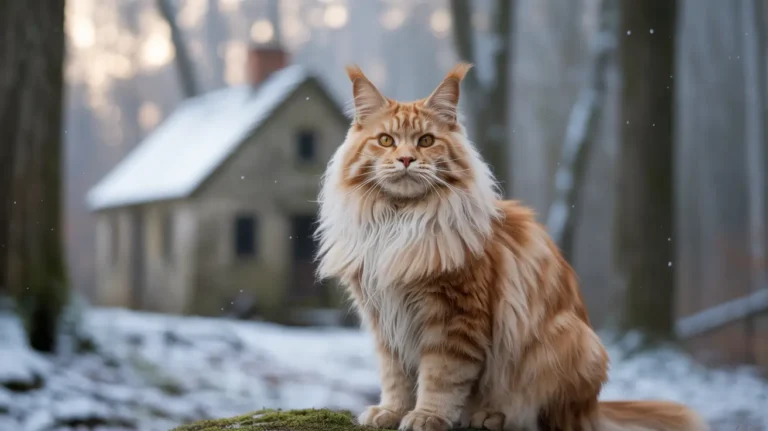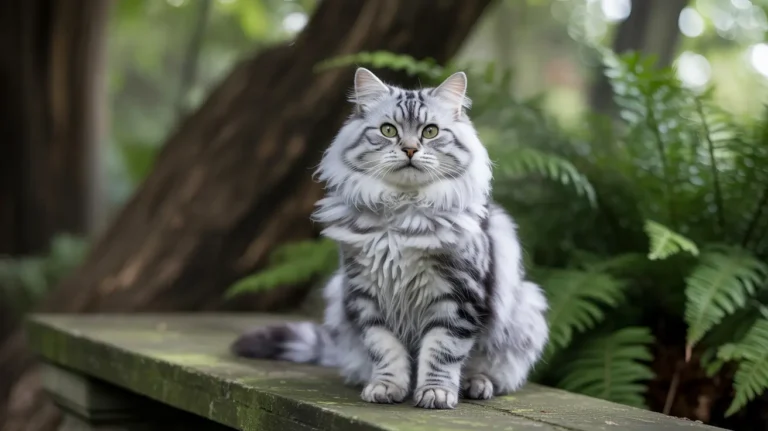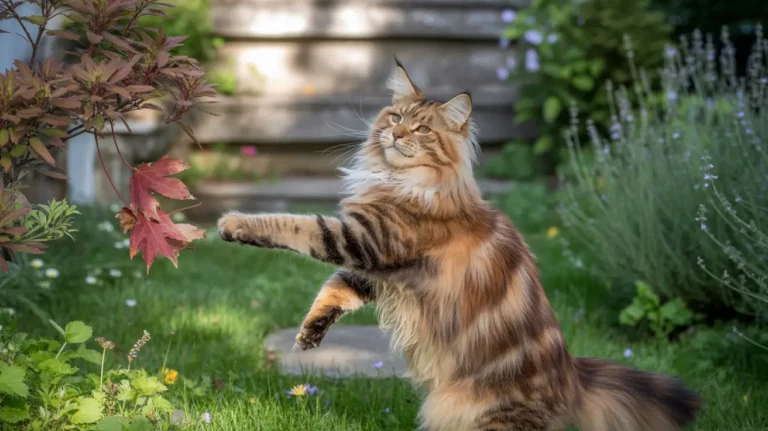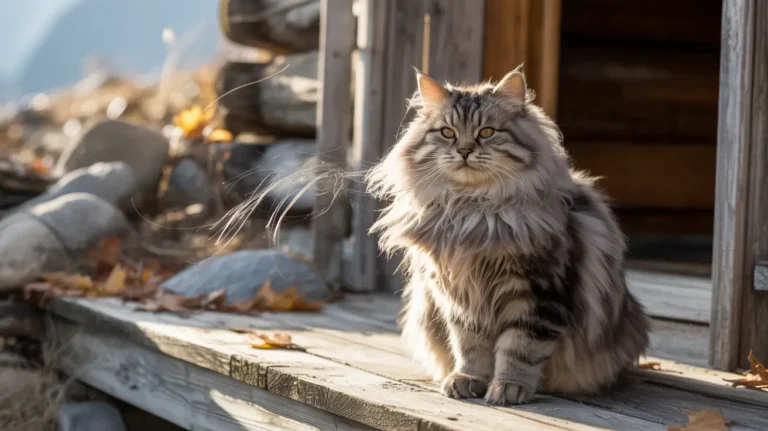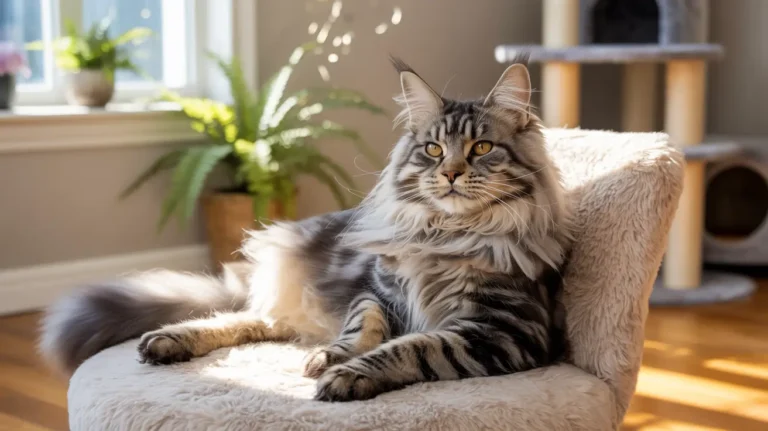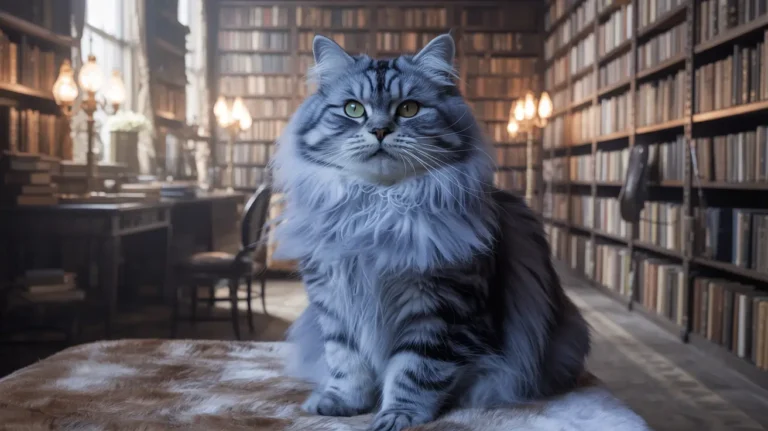Siberian Cats: A Loving and Intelligent Breed from Russia
The Siberian cat, also called the Siberian Forest Cat, is a strong and beautiful breed from Russia. Today, it is known as Russia’s national cat and is one of the oldest long-haired breeds in the world.
One special thing about Siberians is that they produce less of the Fel d 1 protein, which causes allergies in some people. While they are not completely hypoallergenic, many allergy sufferers find them easier to live with.
Siberian cats are known for their friendly and loving nature. They form close bonds with their owners and enjoy spending time with people. They are also very playful and smart, making them great family companions.
With their stunning looks, affectionate personality, and strong health, Siberian cats are a great choice for many pet lovers. These cats developed thick fur to survive the freezing weather in Siberia.
History of the Siberian Cat
The Siberian cat is an ancient breed that has lived in Russian forests for hundreds of years and is an important part of the country’s history and culture.
People in Russia valued Siberian cats’ ability to hunt mice and rats. Over time, they became a special part of Russian culture and were even mentioned in old fairy tales.
They are one of the country’s native breeds and have adapted well to the cold climate of Siberia. Because of Siberia’s freezing weather, these cats developed thick, protective coats.
Siberian Cat’s Looks and Body Structure
The Siberian cat is a large and strong breed with a muscular body, broad chest, and sturdy legs. Its overall appearance is both elegant and powerful, making it well-suited for an active lifestyle. This breed has a unique head shape, bright eyes, and thick fur that changes with the seasons.
Large and Muscular Build – Siberian cats have a solid, well-balanced body with strong bones and a broad chest, giving them a sturdy and powerful look.
Wedge-Shaped Head – Their head has soft, rounded features with a short muzzle and a gentle curve, adding to their friendly and warm look.
Expressive Eyes – These cats have medium-to-large, almost round eyes that come in shades of green, gold, or deep copper, giving them a striking and unique appearance.
Tufted Ears – Their ears are medium-sized, widely set, and rounded at the tips, often with small tufts of fur that enhance their wild look.
Thick, Triple-Layered Coat – Siberians have a dense and water-resistant coat that changes with the seasons, becoming thicker in winter for warmth and lighter in summer for comfort.
Variety of Colors and Patterns – Their coat comes in many beautiful shades and patterns, including tabby, tortoiseshell, and color-pointed variations.
Seasonal Shedding – Siberian cats go through a light shedding phase at the end of summer, preparing their coat for the colder months ahead.
Energetic and Affectionate Personality
Siberian cats are friendly, playful, and intelligent. They love to climb and jump. These cats enjoy playing with toys and can even learn simple tricks, keeping them active and happy. They have a curious nature and are not afraid of water, often playing with it.
Despite their playful side, Siberians are calm and affectionate. They are not very loud but will meow when they need attention. They enjoy interacting with people and can be very expressive, making them a fun and engaging pet.
Siberians are also quite talkative and may use chirps or trills to communicate with their owners. They enjoy spending time with their family, but also appreciate their own space. They will come for affection when they want it and let you know when they need a break.
Common Health Issues in Siberian Cats
Siberian cats are strong and generally healthy, living between 10 to 18 years. With proper care, a good diet, and regular vet visits, they can avoid many health problems. However, they are still at risk for conditions like heart disease, kidney disease, and dental issues.
Heart Disease (HCM) – A condition that thickens the heart muscle, leading to heart failure if not detected early. Regular screenings help with early detection.
Kidney Disease (PKD) – Causes fluid-filled cysts in the kidneys, which can lead to kidney failure. A high-quality diet and proper hydration support kidney health.
Dental Health – Siberian cats can have gum disease and plaque buildup. Regular vet checkups are important because taking care of their teeth at home may not be enough.
Caring for Your Cat’s Well-being
Siberian cats have thick coats that do not tangle easily, but they still need regular brushing, especially when they shed. An occasional bath helps remove loose fur and dirt, and some Siberians even like water.
Their nails should be trimmed often, as scratching posts are not enough. Check their ears often to keep them clean and free from dirt. Siberian cats need good food, vet visits, and regular grooming to stay active and happy.
Maintaining a healthy weight is key to a Siberian cat’s well-being. Extra weight can lead to health problems, so feeding the right amount and keeping them active is important. If a Siberian cat gains too much weight, feeding a balanced diet in the right amounts can help keep them healthy and active.
Keeping Your Cat Active and Happy
Siberian cats are full of energy and need daily exercise to stay healthy. They love climbing, so having a tall cat tree or shelves will keep them engaged. Providing sturdy scratching posts also helps them stretch and strengthen their muscles.
They enjoy interactive play with toys like feather wands, balls, and puzzle games. Teaching them tricks or engaging in interactive games can also keep their minds active. Some Siberians even enjoy leash training for outdoor walks.
Regular activity prevents boredom and unwanted behavior. A mix of climbing, running, and problem-solving games will keep them happy, fit, and mentally sharp.
Diet and Nutrition
Siberian cats need a high-protein diet to stay strong, active, and healthy. Since they are meat eaters, their food should mostly come from real meat or fish, like chicken, turkey, or salmon. A good diet helps them stay muscular, improves their immune system, and keeps their thick fur in good condition.
Balanced Nutrition: Their diet should include essential vitamins, minerals, and amino acids to promote strong bones, a healthy heart, and good digestion.
Portion Control: Measured feeding based on age, weight, and activity level helps prevent obesity.
Mental Stimulation: Food puzzles or interactive feeders provide engagement while preventing overeating.
Hydration: Freshwater should always be available to keep them hydrated.
Preventing Health Issues: A high-quality diet can help avoid common health problems and support long-term well-being.

